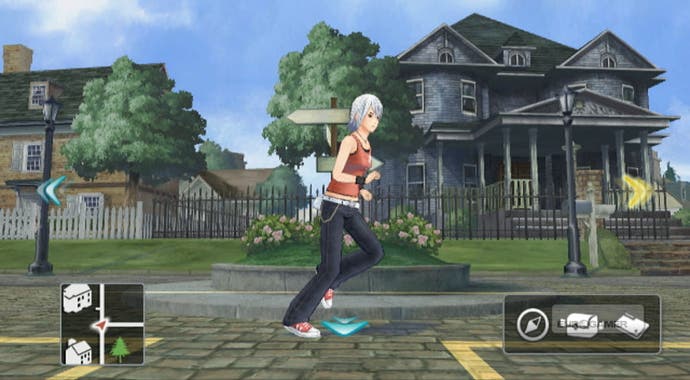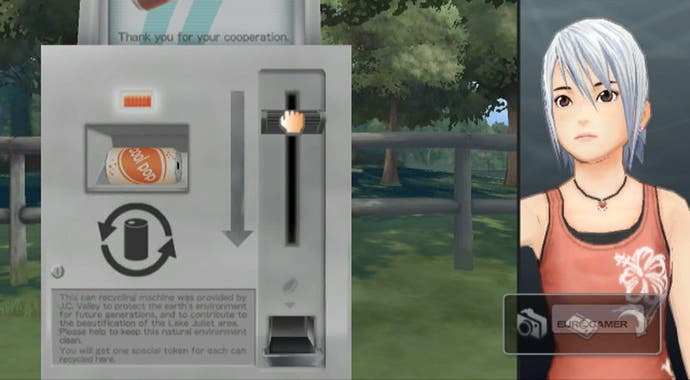Another Code R: A Journey Into Lost Memories
Murder, she clicked.
"Read & Solve like a Mystery Novel!" shouts the sticker on the box for this languid detective adventure, a sequel to the 2005 DS game Another Code: Two Memories. One of Nintendo's cleverer marketing ideas (and it's had plenty lately) has been to slip the classic narrative adventure in with its rebranding of videogaming to reflect the concerns of a front-of-store display in Borders. Character-driven, brain-teasing murder mysteries sit quite neatly alongside food, fitness and self-help, and a moribund gaming genre gets to find its second wind in the slipstream of a mass-market revolution. Cheers all round.
The thing is, though, that Another Code R: A Journey Into Lost Memories doesn't read quite like a mystery novel, and you don't solve it quite like one. For a start, it's moved from DS - where all the recent hits in the genre, from its predecessor and Hotel Dusk (also by Japanese developer Cing) to Professor Layton and Phoenix Wright, have found their home - to Wii. So you no longer hold it in your hand while you wait for a bus or sit on a beach, idly flicking through dialogue and snapping it shut to ruminate on plot points.
Secondly - and here it differs from Hotel Dusk and Capcom's brilliant legal dramas in particular - you don't solve it by teasing out plot clues and guessing characters' motivation and opportunity. The game does that for you, while you unlock the next section of the story through a series of specific, situational item-combination riddles, logic puzzles and motion interactions. It's more of a traditional videogame adventure in that sense.
Thirdly, it doesn't read like a novel because it's not written like one. There's plenty of reading to do in Another Code R - pages and pages of it, in fact - but its plain characters, flat dialogue and matter-of-fact style don't have much of the literary about them, and the themes are loss, memory and teenage growing pains rather than the weakness of the human condition. If Another Code R is a mystery novel at all, it's one from the 'Ages 11-16' section of the library, well-thumbed in a plastic jacket, and dotted with Ribena stains.

None of which is necessarily a bad thing. A game about being a confused teenage girl is certainly a welcome change in a world of games about being an angry teenage boy in the body of a space marine / mutant / mutant space marine. But most of the above contributes to making Another Code R less immediately engaging than you might expect, a problem compounded by the fact that Cing's game is so... very... slow.
For the first three or four of the game's dozen or so hours, 16-year-old half-Japanese heroine Ashley Mizuki Robins - she of the immaculate white manga hair - doesn't do much more than recycle cans of pop and light barbecues while exposition washes over her. Washes over her? I mean creeps, like the tide, at an agonisingly slow pace, in "conversations" in which the last few words of every sentence are repeated as a question. As a question?

Two years on from the first Another Code, in which Ashley unravelled the events surrounding her mother's death, the teen is invited by her distant, absent scientist father for a camping trip at a resort called Lake Juliet, near the lab where he works. This idyllic and sunny location turns out to hide secrets that deepen the mystery of the mother's murder, as well as a parallel story involving a runaway 13-year-old orphan boy called Matthew Crusoe, whom Ashley befriends. The pair set about trying to uncover their parents' pasts and get closer to their lost families together.


